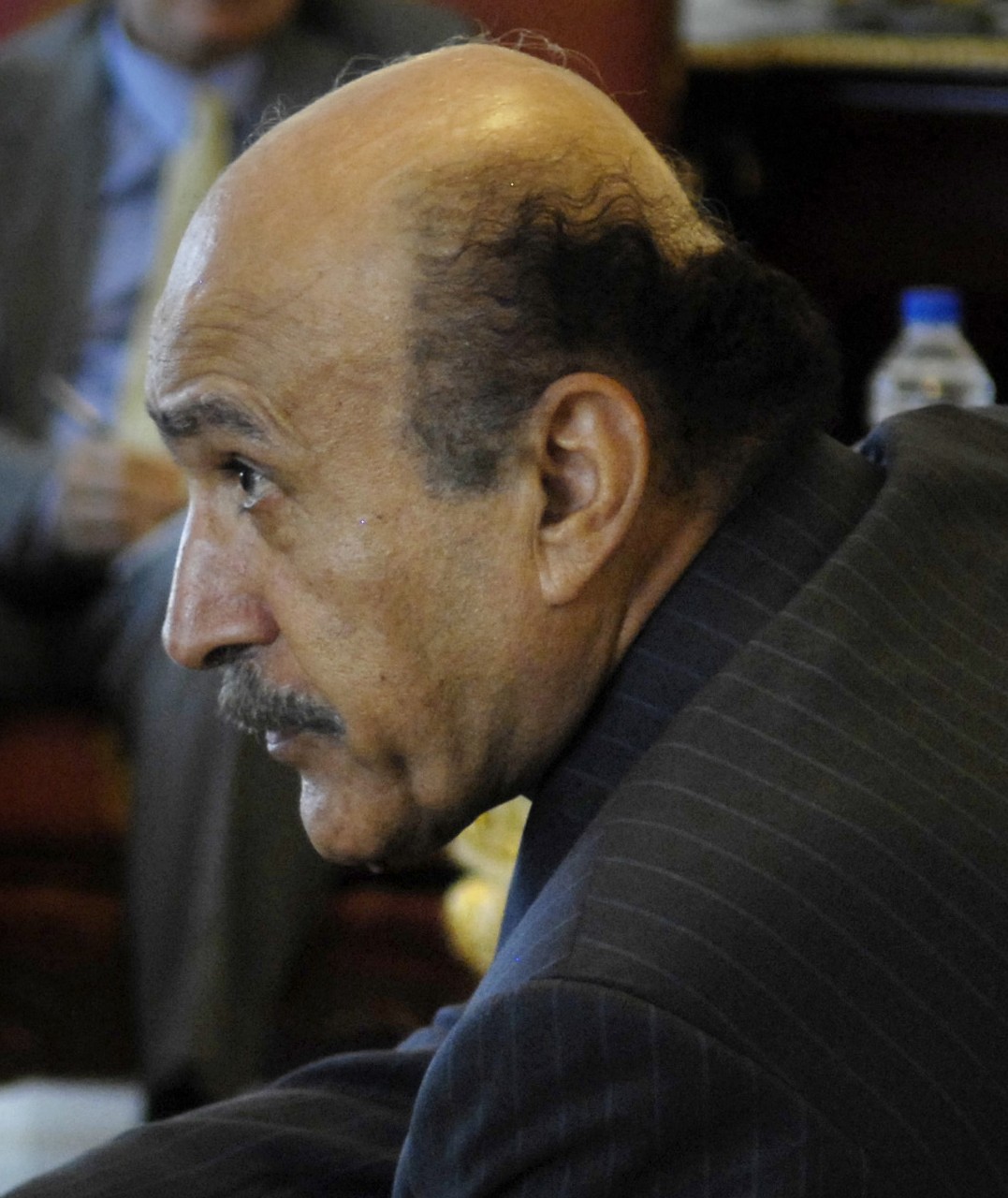Sulaymān, ʻUmar, 1936-2012
Enlarge text Shrink text- باز، محمد. العقرب السام، 2013:title page (عمر سليمان)
- Bāz, Muḥammad. al-ʻAqrab al-sām, 2013:title page (ʻUmar Sulaymān)
- ويكيبيديا (Arabic)، 20 اب، 2013:(عمر سليمان، 2 يوليو 1936-19 يوليو 2012؛ نائب رئيس جمهورية مصر من 29 يناير 2011 حتى 11 فبراير 2011، كان يرأس جهاز المخبرات العامة المصرية منذ 22 يناير 1993 حتى تعيينه نائبا للرئيس؛ عمر محمود سليمان)
- Wīkībīdīyā (Arabic), 20 August, 2013:(ʻUmar Sulaymān, 2 Yūlīyū 1936-19 Yūlīyū 2012; Nāʼib Raʼīs Jumhūrīyat Miṣr min 29 Yanāyir 2011 ḥattá 11 Fabrāyir 2011, kāna yarʼas Jihāz al-Mkhabarāt al-ʻĀmmah al-Miṣrīyah mindhu 22 Yanāyir 1993 ḥattá taʻyīnih nāʼiban lil-raʼīs; ʻUmar Maḥmūd Sulaymān)
- Wikipedia, 19 August, 2013:(Omar Suleiman, 2 July 1936-19 July 2012)
Omar Mahmoud Suleiman (Arabic: عمر محمود سليمان, Egyptian Arabic pronunciation: [ˈʕomɑɾ seleˈmæːn]; 2 July 1936 – 19 July 2012) was an Egyptian army general, politician, diplomat, and intelligence officer. A leading figure in Egypt's intelligence system beginning in 1986, Suleiman was appointed to the long-vacant vice presidency by President Hosni Mubarak on 29 January 2011. On 11 February 2011, Suleiman announced Mubarak's resignation and ceased being vice president; governing power was transferred to the Armed Forces Supreme Council, of which Suleiman was not a member. A new head of intelligence services was appointed by the ruling Supreme Council. Suleiman withdrew from the political scene and did not appear in public after announcing Mubarak's resignation. Millions of Egyptian citizens involved in the Egyptian Revolution of 2011 opposed Suleiman or Mubarak remaining in power without elections taking place. Human rights groups tied Suleiman's career to a regime marked by widespread human rights abuses, and asserted that many Egyptian revolutionaries "see Suleiman as Mubarak II. However many Egyptians also saw Suleiman as a pillar of the old order who might have served as a buffer between military rule on the one hand and dominance by Islamist groups on the other." Tortured victims and human rights groups charged that Suleiman oversaw the systematic use of torture on detainees and that in at least one instance he was accused of personally torturing a detainee. In response to the 2011 protests, Suleiman blamed foreign influence and appealed to protestors to go home. Suleiman died at on 19 July 2012 at the Cleveland Clinic at the age of 76 of complications related to amyloidosis.
Read more on Wikipedia >
 Personality
Personality



